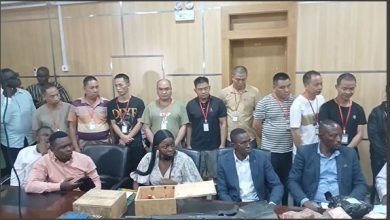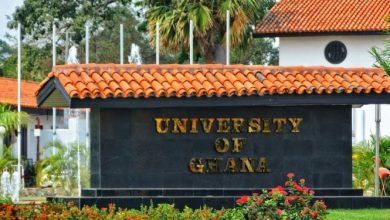President Akufo-Addo appoints Mustapha Hamid as CEO of NPA

President Akufo-Addo has appointed Dr. Mustapha Hamid, as the Chief Executive Officer (CEO) of the National Petroleum Authority (NPA), one of the most sought after positions in government.
The NPA oversees all operations in the multi-billion dollar downstream petroleum sector. His appointment takes effect from 1st July, 2021. This was contained in a letter dated 17th June.
Dr. Hamid, 50, previously served in the first term government of President Akufo-Addo as the Minister for Information and subsequently as the Minister for Inner City and Zongo Development. He also served as the deputy national campaign manager for President Akufo-Addo’s successful second term bid in 2020, and was in charge of the campaign’s communications.
The NPA currently boasts of over 5,000 service providers and an annual sales value of about GHS24-GHS28 billion (US$4-US$5 billion) according to 2020 estimates, which is some 7% of the country’s GDP. The industry works closely with International suppliers like BP, Glencore, Vitol, Trafigura etc, to supply about 80% of petroleum products currently consumed in the country.
Dr. Hamid, will champion the mission of the NPA, which is to “Regulate, Oversee and Monitor the Petroleum Downstream Industry in Ghana for Efficiency, Growth and Stakeholder Satisfaction” and to ensure that its vision, which is to be a “Catalyst for Economic Transformation and Growth in Ghana” is achieved.
Dr. Hamid succeeds Hassan Tampuli, the immediate past CEO of the NPA, who has been elected as the New Patriotic Party (NPP) Member of Parliament for Gushegu and since nominated as Deputy Minister for Transport.
Dr. Hamid served as Spokesperson to Nana Akufo-Addo from 2008 until 2017 when he became Information Minister and Presidential Spokesperson.
Before that, he served as the Executive Director of the Danquah Institute and a lecturer at the University of Cape Coast.
Celebrated for his honesty and integrity, Dr. Hamid is known over the years as one of the trusted loyalists and close confidantes of President Nana Akufo-Addo.
Mustapha Abdul-Hamid attended Tamale Secondary School in 1987 for his Advanced level. In 1991, he was admitted to the University of Cape Coast (UCC) to pursue a Bachelor of Arts degree where he eventually majored in Religious Studies. He subsequently obtained an M.Phil and a PhD in Religious Studies from the same university.
National Petroleum Authority
The National Petroleum Authority as an institution where Dr. Hamid, will be leading and giving direction to improve its lot, was established by an Act of Parliament, National Petroleum Authority (NPA) Act 2005, ACT 691, to regulate the petroleum downstream industry in Ghana.
As a Regulator, the Authority ensures that the industry remains efficient, profitable, fair, and at the same time, ensuring that consumers receive value for money. The petroleum downstream in Ghana encompasses all activities involved in the importation and refining of crude oil as well as the sale, marketing and distribution of refined petroleum products in the country.
The various commercial activities of the industry include: importation, exportation, re-exportation, shipment, transportation, processing, refining, storage, distribution, marketing and sale of petroleum products. The industry is one of the key sub-sectors and a major contributor to Ghana’s Gross Domestic Product (GDP).
Since the establishment of the National Petroleum Authority in 2005, the Authority has supervised the acceleration of the petroleum downstream deregulation process by facilitating the removal of restrictions on the establishment and operations of facilities, and importation of crude oil and petroleum products.
In June 2015, the Authority successfully implemented the final phase of the deregulation process, which is Price Liberalization. This process involves a full decontrol of prices of petroleum products from government.
Private importers, distributors and retailers are empowered to set ex-refinery and ex-pump prices with no intervention from government. The Ghana petroleum downstream industry boasts of over 1 million MT worth of a state-of-the-art storage infrastructure.
Due to the positioning of Ghana along the coast of West Africa, as well as the country’s democratic credentials, security and stability, the downstream industry is well placed to efficiently store strategic stocks of petroleum products as well as serve as a reliable point for exportation into the neighbouring land locked countries. This is evident in the increasing rate of exportation of petroleum products out of the country.










